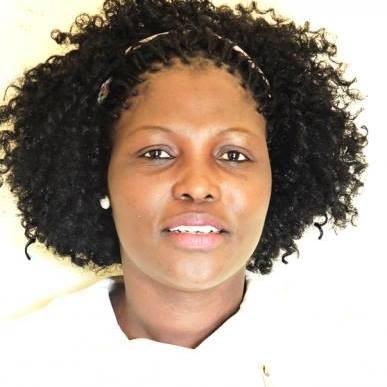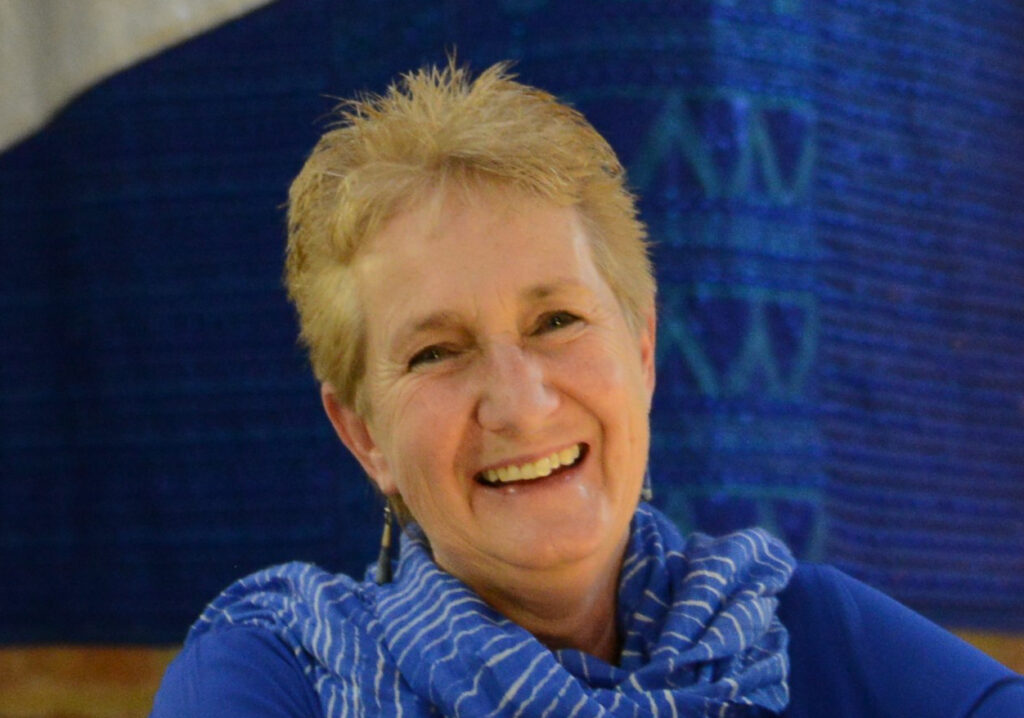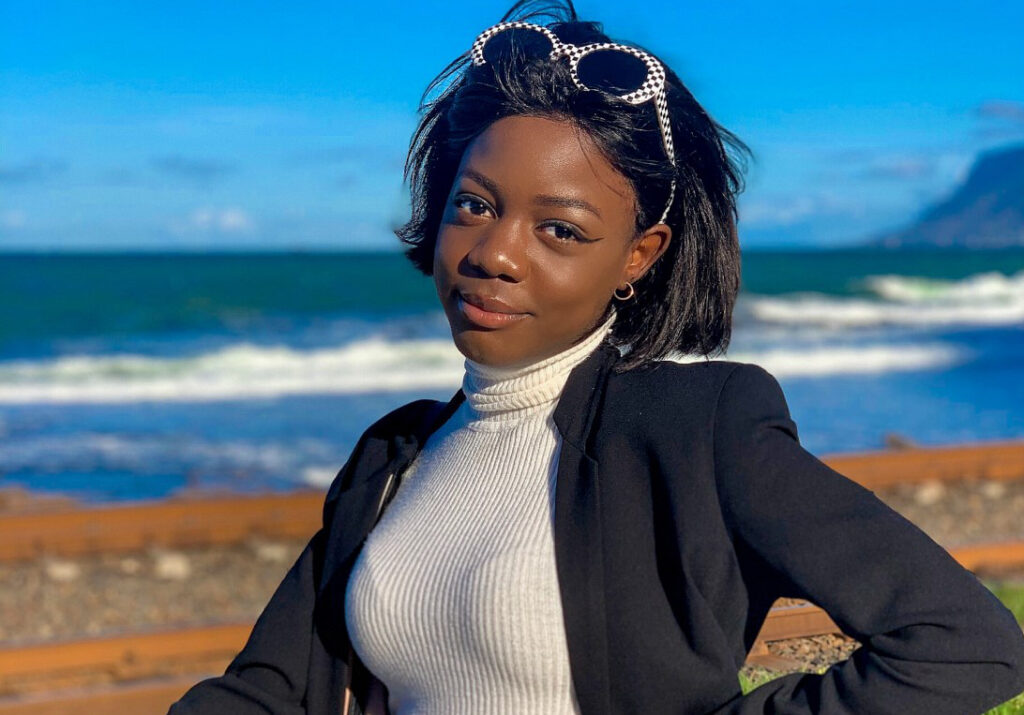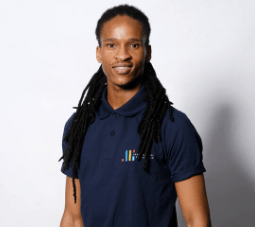Sicelo Bhengu, Senior Deputy Headmaster at Southdowns College
This Mail & Guardian webinar was sponsored by the Jakes Gerwel Fellowship. It featured Marjorie Brown, History Teacher at Roedean High School; Mokhudu Machaba, Teacher at Ngwanamago Primary School; Sicelo Bhengu, Senior Deputy Headmaster at Southdowns College; and Mugisha Hakizimana, Student and Jakes Gerwel Candidate Fellow. It was moderated by Zolani Metu, Jakes Gerwel Fellowship.
Ten years ago Mokhudu Machaba, a teacher at Ngwanamago Primary School in Limpopo, realised that her learners needed to interact with technology in order to keep up with their peers globally. She had no access to computers, so she started teaching them with her own cellphone. “The school started realising: ‘this thing is working!’ and gradually, within the school budget, they started buying a single laptop per term. The laptops were slow at some point, but we didn’t stop!”
 Mokhudu Machaba, Teacher at Ngwanamago Primary School
Mokhudu Machaba, Teacher at Ngwanamago Primary SchoolMachaba stays after school to tutor learners who need extra assistance. “I use what I have, to do what I can,” she said. “I don’t just sit back and say ‘somebody must come rescue us’.”
A product of the apartheid-instilled Bantu Education System, Machaba’s school as a child was seven kilometres from her home; she often had no shoes and used a rice sack as a school bag. At school, the pupils sat on the floor writing on slate, her bio on the website for the Global Teachers Prize 2020, for which she has been nominated, tells.
According to panellist Sicelo Bhengu, this experience highlights the fundamental difference between private and public schooling in South Africa today: resources. “The biggest thing is resources — I think you can’t shy away from that,” said Bhengu. “That’s what sets those two sectors apart. Having said that, it’s also important for us (as teachers) to understand that we are the biggest resources in a classroom.”
Marjorie Brown says that schools could do a better job at supporting teachers. “Teachers come into schools with a certain amount of subject content; a certain amount of methodology and skill knowledge. That’s how we tend to focus on a teacher as a teacher,” she said. “But we forget that that teacher also comes in with a set of emotional needs, possibly also trepidation and nervousness; and that teacher comes in also with a personal identity,” said Brown.
 Marjorie Brown
History Teacher at Roedean High School
Marjorie Brown
History Teacher at Roedean High School“And now that teacher has to engage with young minds with empathy, has to teach subject content … and navigate conflict within the classroom. We’re expecting a huge amount.”
And yet, despite the significant expectations placed on them, “not all of them enter institutions that are going to support them, understand them, accept their identity [and] their values”. Teachers may also be entering schools that “don’t like change, and are going to resist a teacher that comes in with new skills, new technology and new methodology”.
Mogisha Hakizimana said that teachers and pupils still have to overcome poor working and learning conditions. Pupils might have an “amazing teacher who is doing the most”, but that factor would be overshadowed by the fact that there are no running toilets in the school, for example. “No matter how much the teacher pushes, there are those physical constraints that need to be fixed in a lot of these schools,” she said.
And then there’s the issue of pay. “If you look at the material gains teaching has to offer, it’s very small,” said Bhengu. He argues that high quality students need to be incentivized to enter the teaching profession. But ultimately, it’s the sense that teaching is a calling that drives great educators, he says.
And the panellists in the discussion agreed a that greater sense of good is what keeps them motivated. “My director says ‘if you work for money, money will run away from you,’” says Machaba. “But if you work with passion, money will follow you.’ These are the words that keep me going.”
 Mugisha Hakizimana, Student and Jakes Gerwel Candidate Fellow
Mugisha Hakizimana, Student and Jakes Gerwel Candidate FellowHakizimana turned down a corporate-funded scholarship – one that would have led to a higher paying job — in favour of her fellowship with the Jakes Gerwel fellowship. For her, the thought that she’ll be able to make meaningful changes in people’s lives is a motivator. Brown is fuelled by the social impact she can make as a teacher. “In teaching you can change lives. You can change society,” she said.
Teachers need to be given the skills to equip themselves as change agents, said Brown. For example, the UN’s sustainable development goals should be translated into every subject. “The sustainable development goals have been developed to … save the world in a sustainable way that balances communities, the environment, and our economic needs in the world,” she said. “I think young teachers should be coming into schools really well versed in [the goals] and how it actually impacts in their subjects.”
 Zolani Metu is a Mandela Rhodes Scholar with a passion for promoting mental health and wellbeing
Zolani Metu is a Mandela Rhodes Scholar with a passion for promoting mental health and wellbeingSo how does a young teacher go about equipping themselves with the psychological, technological and global skillset needed to excel in today’s society?
Brown’s advice is:“Find yourself a mentor. Find someone who sees the value in what you’re doing, who doesn’t want to pull you down, make you become passive and just do things for a salary.”
To view the webinar, click on the YouTube link below: